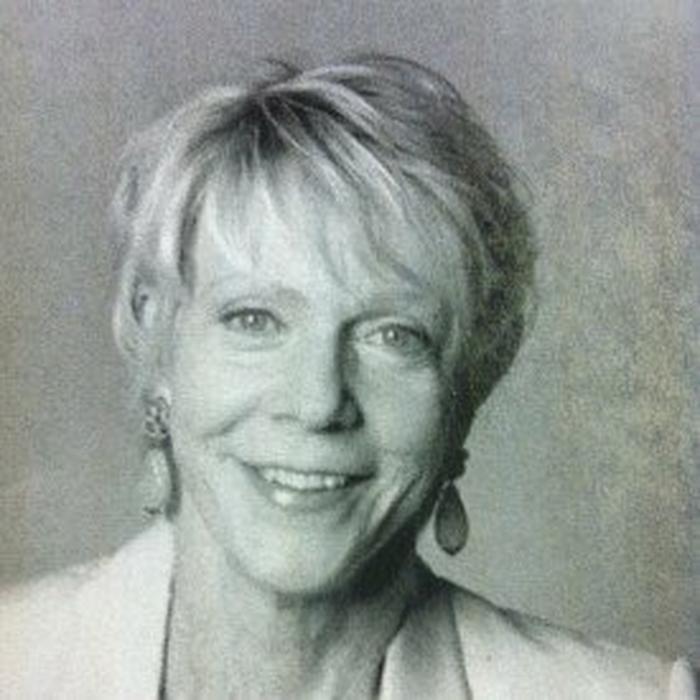
Welcome back, Cathie Black!
Two weeks ago, we introduced you to Cathie as your virtual career mentor. A quick refresher: Cathie was one of the first female moguls in the media industry—she’s served as the Chairman and President of Hearst Magazines (think Cosmopolitan, Marie Claire, Harper’s Bazaar, and O, the Oprah Magazine) as well as President and Publisher of USA Today.
And every other week, we’ll be sitting down with Cathie and bringing you her practical advice on pursuing your passions, having a success mindset, getting ahead at work, and creating the career and life of your dreams.
Today, we’re chatting with Cathie about all things management: Her first management role, her hardest, and what’s learned from tough bosses (she once reported to Rupert Murdoch). If you’re a manager or aspire to be one someday, read on for a few important lessons.
What was your first management position?
When I was 28, I became the advertising manager for Gloria Steinem's new feminist magazine, Ms. It was baptism by fire. We had a small ad sales team, all of whom were my age, and half of whom thought they should have been chosen to be the manager.
Our challenge was to convince national advertisers that the women's market was exploding and the readers were buying their own cars and condos, going on vacations, and yes, buying clothes, food, and beauty products. It was a really tough sell. Marketers were skeptical—or even downright against—associating with anything related to the women's movement.
I knew little about managing young, inexperienced ad sellers, and I made a ton of mistakes. Mostly by being too demanding, not listening enough to their concerns, and by thinking that my approach (very hands-on) was the only model. But in time, we made big breakthroughs with our advertisers, which boosted our spirits, and we became a team, not just six independent loners. I learned how to lead by example, to encourage and inspire them, to give them space, and to earn their respect.
In retrospect, it was a huge learning experience for me, and as I improved as a manager, my confidence grew as did the ad revenue, which the magazine dearly needed. Sometimes learning by just doing and finding a mentor to guide me through the rough patches was better than any course I could have taken.
What was your toughest management position?
That's an easy one—being named President and Publisher of USA Today, a huge startup in a publicly held company. It was a first for a woman to be named publisher of a newspaper of that size. I had a much older guy refuse to report to me, the ad team I inherited was a C-level at best, Wall Street analysts doomed it from the start, and the media coverage was almost universally negative.
I immediately recruited people I knew to take the senior roles in key markets, as I felt they could move faster to convince advertisers that this newspaper was going to be a huge success. Like Ms., it was a huge challenge, but I always thought it was worth the risk. We sold USA Today with a passion, determined to prove the skeptics wrong. As the advertising began to come in, the press coverage turned positive and the circulation soared. So did our belief that we could make it. And by never taking no for an answer, by going to the top-decision maker at clients in every city, and by just plunging forward at every turn, we began to make real progress. And momentum began to build.
That's how you face really tough challenges: You assess the possible outcomes, you find the person who can say yes and has the authority to make decisions, you build an A team, and you go for it!
How would you describe your management style now—and how has it changed over the years?
I have changed a lot. I have always been decisive, but now I am a better listener, hearing people out and letting them participate more fully. Early on I was a micro-manager, but now I delegate responsibility, allowing people to do their best work without constant interference. Am I tough? Yes, when I have to be, but I am always fair.
Part of being a manager is making tough decisions about people and about the business. What are some of the toughest decisions you’ve made?
I learned this from a former COO—the only thing you regret about a tough decision is that you didn't do it sooner. And that is so true. For me, that included downsizing staffs, closing failing magazines, reducing budgets, and getting rid of low performers. You have to put your resources where they’ll have the most promising upside. But always be fair and generous when possible.
You have reported to some tough managers—Rupert Murdoch, for one. What have you learned from tough managers?
They are relentless in pursuing their goals. With a really tough boss, you have to be fearless and stand up for what you believe in. They detect weakness if you don't project confidence. Know your numbers inside and out.
What is the best management advice you’ve ever received?
Assume nothing. Hope is not a strategy. Hire an A team—because B's hire C's, and you cannot drive a business with B's and C's. And if you don't like what you are doing, change it.
And what management advice do you give to women now?
Decide what it is you want and how far you want to go, and know you can have it all—just not all at the same time! And these answers unfold over time. But it takes thinking and work to plot out your path. Most of all, lead your best life. And only you can know what that is. And when you aren't enjoying it, reroute.
Check back in two weeks for Cathie’s advice on having it all—just not at the same time.